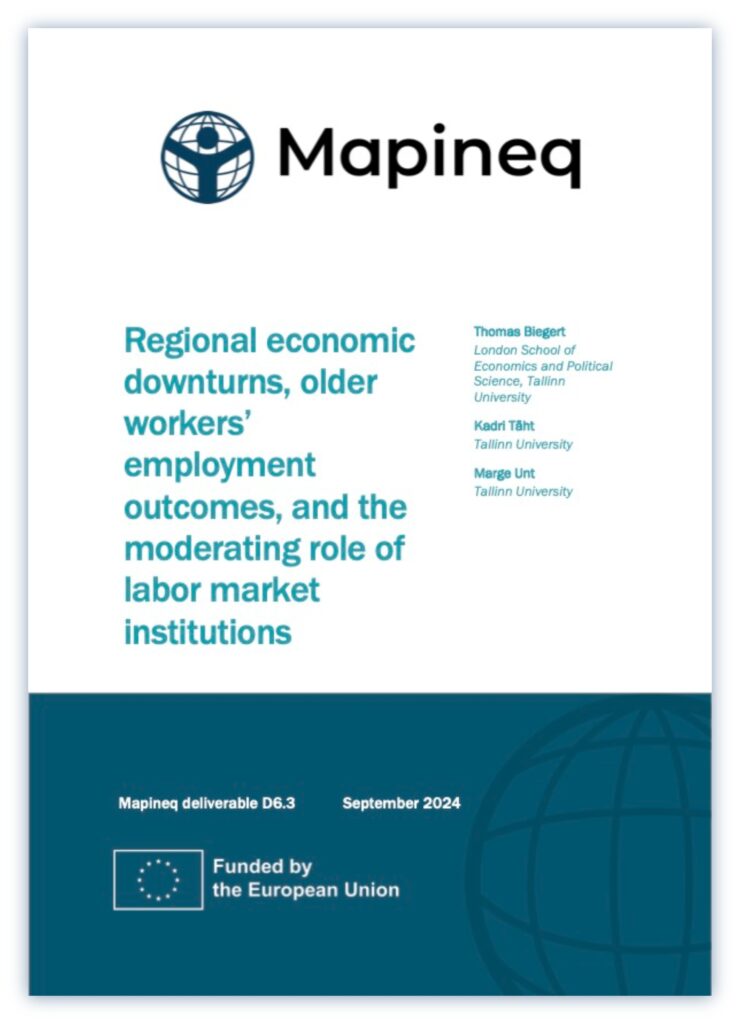Regional economic downturns, older workers’ employment outcomes, and the moderating role of labor market institutions
This study examines the impact of economic downturns on older workers’ employment outcomes using data from 24 European countries between 1992 and 2021. We analyzed how changes in regional unemployment rates affect non-employment, unemployment, inactivity, and precarious work among workers aged 50-64, both immediately and five years later. The study also explores how employment protection and active labor market policies (ALMPs) moderate these effects. We found that economic downturns increase non-employment for older workers, but they tend to stay attached to the labor market, partially via precarious jobs. ALMPs support older women’s employment, while stricter protection policies benefit older men during economic recessions. Furthermore, ALMPs are associated with smaller or no increases in precarious jobs, indicating that they help older workers keep or find quality employment.
By Thomas Biegert, Kadri Täht and Marge Unt.

Economic downturns raise the likelihood of non-employment for older workers.

Older workers are more likely to accept precarious jobs during economic downturns to maintain income and stay employed.

Employment protection benefits older men more, while active labor market policies (ALMPs) are particularly effective in supporting older women during downturns.

